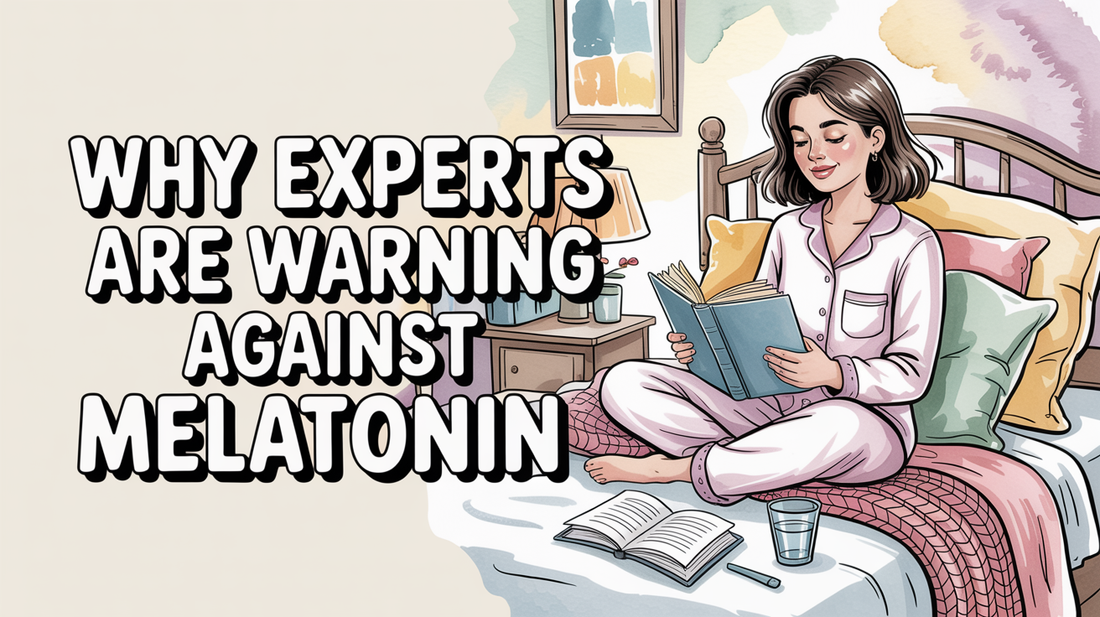Why is melatonin no longer recommended?
As more individuals seek solutions for sleep issues, concerns around melatonin are becoming increasingly prevalent. Experts are raising questions about melatonin risks and highlighting why melatonin is not recommended for long-term use. This article will explore three key sections to help you understand these concerns and offer actionable steps for a more restful night.
Some experts caution against long-term melatonin use due to dependence and hormonal disruption
Sleep specialists have expressed caution regarding the extended use of melatonin, particularly due to its potential to cause dependency and disrupt the body's natural hormone production. Although melatonin can be safe for short-term use, relying on it over a longer period may interfere with the pineal gland's ability to produce melatonin naturally. Prolonged supplementation may inhibit the body’s own melatonin synthesis, leading to a reliance on external sources. Moreover, melatonin can impact various hormones, including cortisol and reproductive hormones, raising further concerns about long-term safety, especially as research on its prolonged effects is limited.
- Extended use might reduce your body's natural melatonin production.
- Regular supplementation can hinder the pineal gland’s ability to synthesize melatonin.
- Melatonin can influence other hormones, which may lead to additional health considerations.
- Potential rebound insomnia may occur when stopping melatonin after regular use.
Try It Tonight: Quick Start ✅
- Screen-free + dim lights for 10–15 minutes.
- Gentle stretch or slow breathing (4–7–8).
- Apply Magnesium Spray as directed (e.g., 4–8 sprays on legs/arms/shoulders 10–20 minutes before bed). Patch-test if new to topicals.
Daytime grogginess, vivid dreams, and headaches are possible drawbacks
For some users, melatonin supplementation can lead to several side effects that disrupt daily life and overall sleep quality. These effects are often more noticeable with higher dosages or inconsistent intake. For example, morning grogginess might linger if melatonin's effects carry over into the day, making it challenging to focus on tasks. Additionally, vivid dreams or even nightmares can occur, which may counteract the intended benefits of longer sleep duration. Those adjusting their dosage might also experience headaches or dizziness, which can be unsettling as they navigate their sleep routine.
- Morning grogginess can affect your productivity throughout the day.
- Vivid dreams or nightmares may disrupt your sleep quality.
- Headaches and dizziness might emerge when starting or adjusting dosages.
Why We Recommend a Gentle Helper 🌿
Magnesium Spray offers a gentle approach to sleep support, designed for quick absorption and a soothing feel. This product may help foster a consistent bedtime ritual that promotes relaxation.
- Quick-absorbing comfort—no heavy residue.
- Gentle feel designed to minimize tingling or irritation.
- Bedtime-friendly scent that enhances relaxation.
Magnesium and good sleep hygiene may offer safer long-term options 🔍
Experts increasingly advocate for natural alternatives and behavioral strategies as safer, more sustainable solutions for improving sleep over time. These methods focus on addressing the underlying causes of sleep disturbances rather than simply masking symptoms. For example, integrating magnesium supplements may assist with natural sleep regulation without the hormonal interference associated with melatonin.
- Establishing consistent sleep schedules can help regulate your circadian rhythm naturally.
- Creating optimal sleep environments—cool, dark, and quiet—enhances your body’s natural melatonin production.
- Limiting screen time and blue light exposure before bed can support melatonin release.
Take Action for Better Sleep Tonight 🌙
Incorporating practices such as regular exercise, stress management, and avoiding stimulants like caffeine can lead to a healthier sleep architecture. These strategies can help reduce reliance on supplements and promote a more restful night naturally.
- Regular exercise can improve sleep quality.
- Manage stress through mindfulness or relaxation techniques.
- Avoid caffeine and alcohol, especially in the evening, to enhance sleep outcomes.

